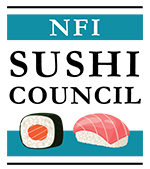Warning: Careless Journalism Is Hazardous to Your Health
Readers should expect only the best journalism from the Washington Post, a Pulitzer Prize winning newspaper; and Slate.com, a recipient of the prestigious National Magazine Award for General Excellence. Or, at the very least, they should expect clear, accurate and reliable reporting. Yet thats not what theyre getting.
The outlets have failed their readers miserably in recent weeks by publishing unbalanced articles and flat out false information about the safety of seafood. Even worse, they have resisted correcting the record when errors and problematic reporting has been brought to their attention.
For example, Slate’s article, “Do Coal Plants Really Kill People?” bywriter Amanda Schaffer misleads readers with incomplete, inaccurate information on seafood that conflicts directly with the advice of leading medical organizations.
Ms. Schaffer cites a university study that came to worrisome conclusions about mercury in fish. This is not slightly inaccurate . . . its completely wrong. The studys actual conclusions which you can find with a simple a Google search are hardly worrisome:
. . . eating lots of fish carries no detectable health risk from low levels of the substance, even for very young children and pregnant women.
Even though the conclusions of the study Slate cited are the opposite of what Slate reported, Slate has not fixed the error or even acknowledged our requests that they do so.
Then there was the Washington Post, which recently published the article, Eating fish is wise, but its good to know where your seafood comes from. The article manages to turn basic journalism on its head burying the most important information at the very bottom: Eating seafood is good for your health.
Getting to that conclusion requires a Herculean effort: slogging through 1,000 words of unscientific blather. How many busy readers have the time and patience to do that? Its the kind of reporting that leaves readers more in the dark than they were before they started reading it.
Like Slate, the Post has refused to correct the record.
What makes these two stories troublesome is that they are contributing to a national health crisis: Americans dont eat enough seafood, and the consequences are deadly.
According to Harvard researchers, 84,000 Americans die of heart disease each year that could have been prevented if they had eaten a diet rich in fish. So when journalists report misleading information that discourages Americans from eating more seafood, theyre partly responsible for those preventable deaths.
There is an unwritten contract between journalists and the public. Journalists commit themselves to reporting only accurate and unbiased information and in return the public agrees to take those journalists seriously.
Of course, reporters will make mistakes just as everyone else does. But ethical journalists correct their mistakes as part of their commitment to accuracy. So what does it mean when a journalist refuses to correct or clarify the record even after an error or other problem has been brought to their attention? It casts doubt not only on the trustworthiness of the reporter but on the outlet as well.
And when their reporting impacts public health, journalists should be held accountable for the lives put in jeopardy by their carelessness.


